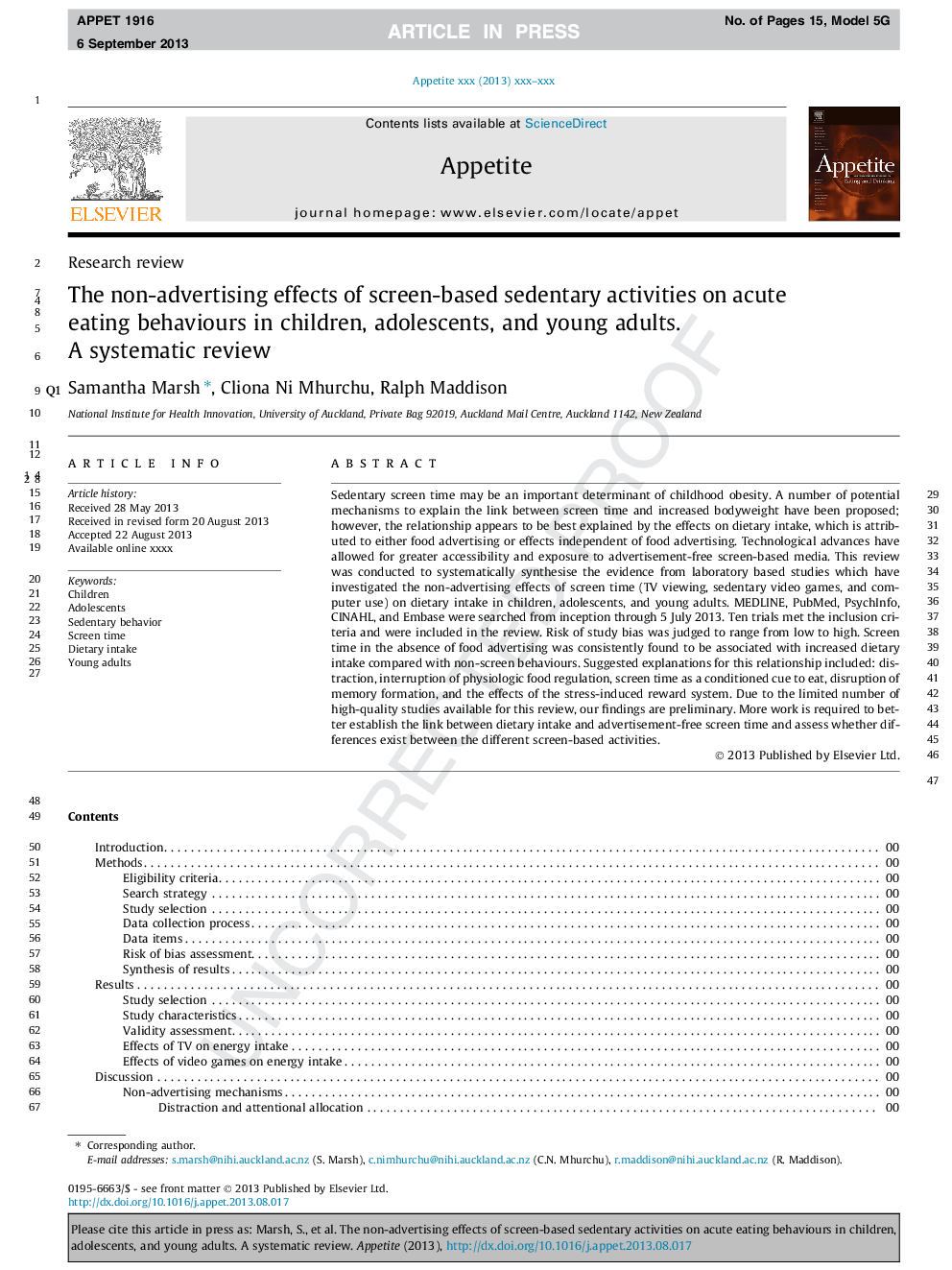| Article ID | Journal | Published Year | Pages | File Type |
|---|---|---|---|---|
| 7310560 | Appetite | 2013 | 15 Pages |
Abstract
Sedentary screen time may be an important determinant of childhood obesity. A number of potential mechanisms to explain the link between screen time and increased bodyweight have been proposed; however, the relationship appears to be best explained by the effects on dietary intake, which is attributed to either food advertising or effects independent of food advertising. Technological advances have allowed for greater accessibility and exposure to advertisement-free screen-based media. This review was conducted to systematically synthesise the evidence from laboratory based studies which have investigated the non-advertising effects of screen time (TV viewing, sedentary video games, and computer use) on dietary intake in children, adolescents, and young adults. MEDLINE, PubMed, PsychInfo, CINAHL, and Embase were searched from inception through 5 July 2013. Ten trials met the inclusion criteria and were included in the review. Risk of study bias was judged to range from low to high. Screen time in the absence of food advertising was consistently found to be associated with increased dietary intake compared with non-screen behaviours. Suggested explanations for this relationship included: distraction, interruption of physiologic food regulation, screen time as a conditioned cue to eat, disruption of memory formation, and the effects of the stress-induced reward system. Due to the limited number of high-quality studies available for this review, our findings are preliminary. More work is required to better establish the link between dietary intake and advertisement-free screen time and assess whether differences exist between the different screen-based activities.
Related Topics
Life Sciences
Agricultural and Biological Sciences
Food Science
Authors
Samantha Marsh, Cliona Ni Mhurchu, Ralph Maddison,
